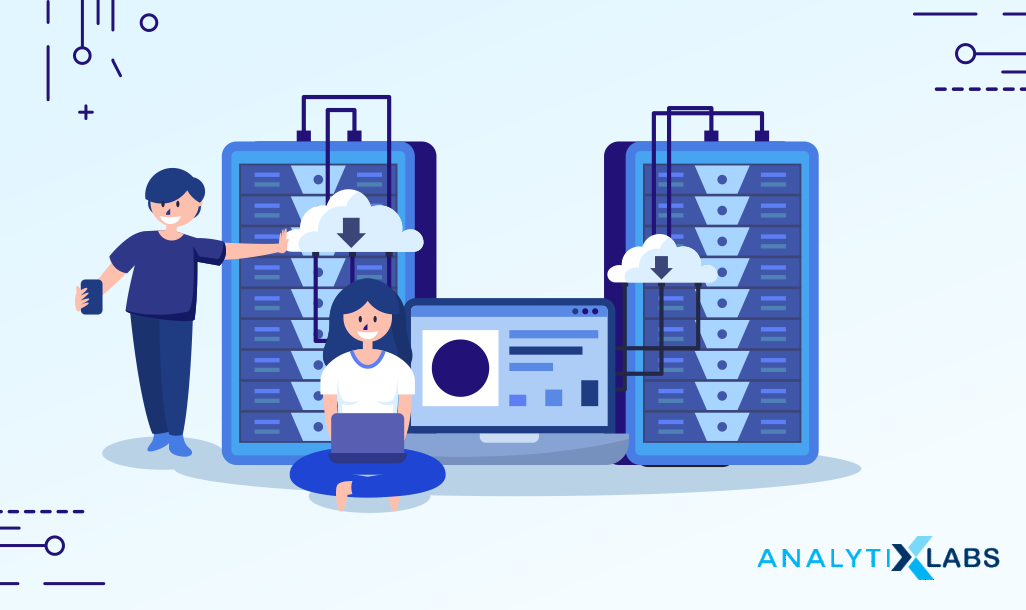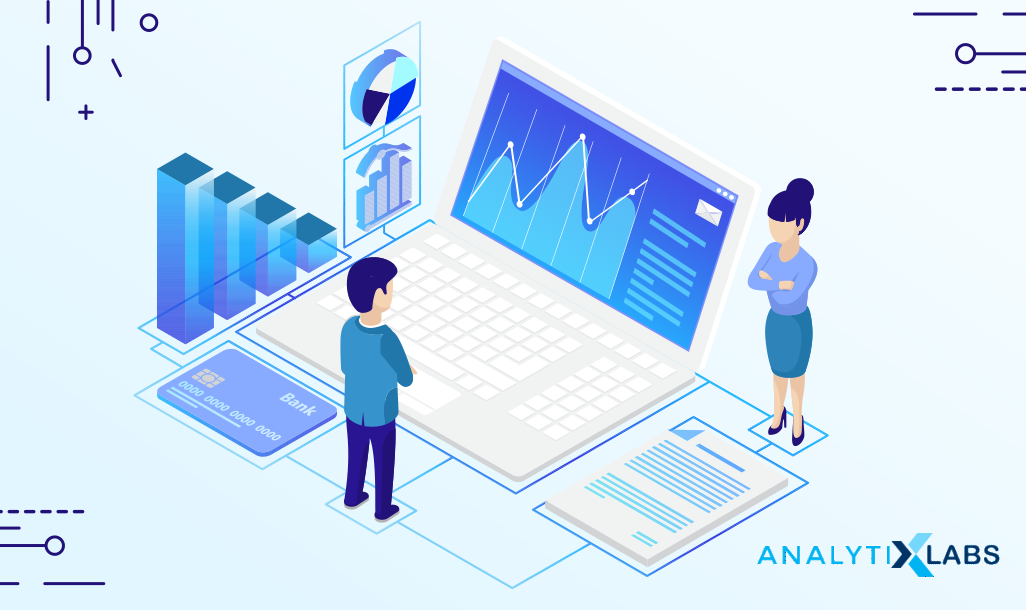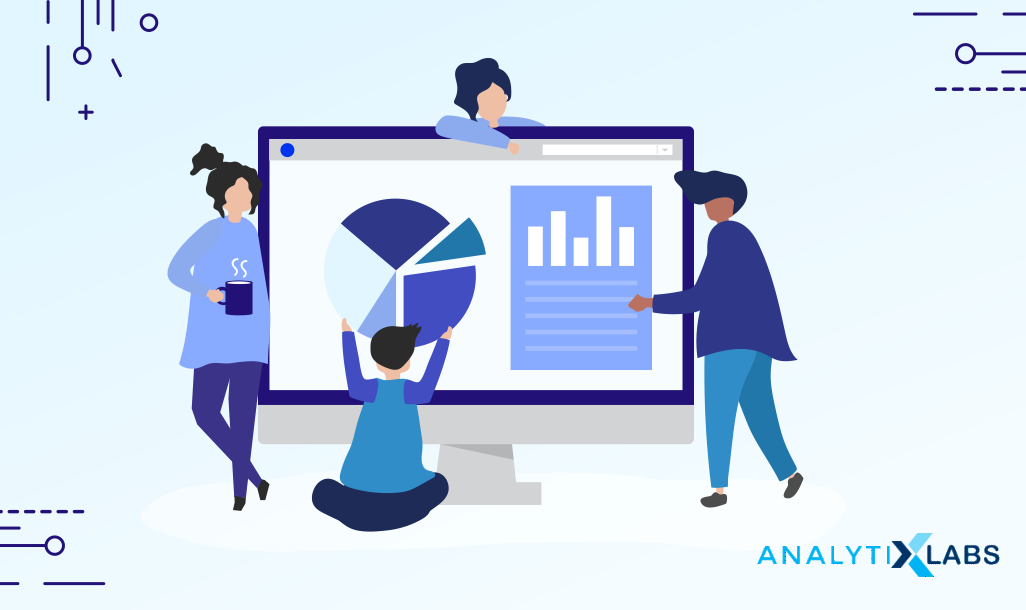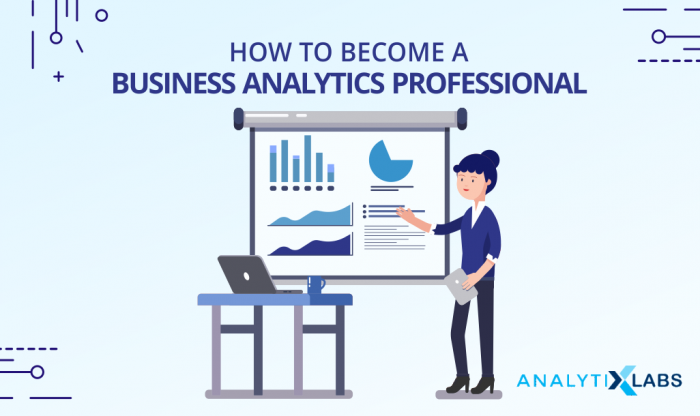Un-informed decision-making is truly a thing of the past!
With oceans of data available on virtually any topic under the sun (and beyond), we are no longer living our lives in puzzlement.
When Data study enters the Business world, it takes on the appealing garb of Business Analytics.
Business Analytics uses data driven insights to influence business decisions and create efficient, automated business processes. But not everyone can do this. It takes a skilled Business Analytics professional to determine the quality of data, understand technology and business, utilise relevant data points to align to organisational objectives and produce superior data-driven business decisions.
But before we get onto the path of how to become a Business Analytics Professional, let’s find out a few basic differences between Business Analyst and Business Analytics. A common area of confusion…
Differences between Business Analyst and Business Analytics

A Business Analyst is the one who works between a client and a Product Development team to ensure that product delivery is giving solutions as desired by the client. A Business Analyst’s role may involve offering technical project management and dealing with stakeholders, internally and externally, especially in relation to the design or implementation of particular tasks or projects.
A Business Analyst does not deal with data at all.
A Business Analytics professional, on the other hand, gets all insights purely from Data.
Business Analytics comprises of deciphering data by research and resultant predictions via decisions made. This ensures the right and most effective action is undertaken. The execution of these occurs in a way that combines statistical software findings with business know-how towards the ideal business solutions. These solutions are shared with stakeholders who utilise this information to make ideal organisational plans and decisions.
Market need gap
Business Analytics is an exciting, profitable and highly beneficial sector poised to revolutionise the local business landscape. It has become a core business practice as it emerged as a vital link between a company’s business objectives and available data.
But why do we need this revolution?
Here’s one reason why… The IBM Institute for Business Value and Oxford Economics recently pointed out that 90 percent of Indian startups failed within the five years after inception.
Hence, the need for willing and able Business Analytics Professionals who can lend their expertise of utilising relevant data to save the day.

So Do You Have What It Takes to enter Business Analytics?
Here’s your check-list!
a) Degrees and Work Experience
Your educational qualifications and work experience form the basis of your resume. Business Analytics professionals can hail from various streams of education but there is a certain level one needs to achieve to be able to qualify for the Analytics line.
Degree Requirement
A Bachelor’s or a Master’s degree in Business Administration, Business Analytics, Data Science, Applied Analytics, Marketing Analytics, Accounting or Information Systems among many.
Technical Skill Set
Scripting Language (eg: Python), Querying Language (eg: SQL, Hive), Spreadsheet skills (Excel), Statistical Language (eg: SAS, R), Programming (Java), and Big Data Tools (eg: Hive). There are also some detailed on-the-job technical requirements such as the ability to design, develop and implement systems that assist organizations in gathering, storing, and utilization of data. It also helps to have technical know-how when dealing with other data analysts. In any case, it’s better to be clear about your technical skill levels right at the beginning of the job.
Analytical Skill Set
Analytical skills that understand business processes and at all 3 levels of problem identification: business, software and information.
Internship or Course
A short-term internship for hands-on experience is recommended or a certificate course in business analytics.
b) Core skills
If the following list interests and excites you, you’re halfway there to being a good business analytics professional! If not, now’s the time to begin sharpening some core Business Analytics skills such as:
Communication
The skill to communicate effectively is vital for a Business Analytics professional. It comes in handy while understanding a problem and asking the right questions to arrive at an apt solution. You will be required to deal with data analysts and developers on a constant basis. You must, therefore, hone your writing and documentation abilities. Also, ensure that you are a good listener as communication is a 2-way game!
Critical Thinking
With huge data in hand, making a judgement or business decision is not an easy task. A business analytics professional needs to have a critical thinking to be able use the data in more structured manner and draw valuable insights for the business. External business analytics professionals are the most effective due to their ability to detach while critically analysing the options to a particular problem regarding big data.
Problem Solving

Every Business Analytics professional is a problem solver! It is the chief purpose of an analyst to swoop in and fix everything. Problem-solving also involves finding the real problem. This is done by understanding the entire business process, data variants, and parties involved. Business Analytics professionals are required to be sound negotiators who possess the uncanny ability to influence internal and external people in their direction.
c) Decision-making and managerial skills
Since the role of a Business Analytics professional is a vital one, the two skills that come in handy are the ability to manage projects and people with the given resources and arrive at the most profitable solutions. The ability to make a decision after taking every opinion and scenario into consideration is also a valuable asset for a Business Analytics professional.
You may also like to read: Do You Know the Differences Between Business Analytics and Data Analytics?
Becoming a Business Analytics Professional

You may enter this line from an IT background or a Management one. Though there are 2 common ways in which interested candidates make it to being a successful career in Business Analytics:
a) Business Analytics After College
If you have freshly acquired a Bachelor’s or Master’s degree, you can apply for at a company as a Business Analyst provided you’ve completed some internships during your course or have done a professional course in Business Analytics.
b) Business Analytics As a Career Transition
The other way to enter this line is from other domains like Software Development, Data Mining, Business Administration or even Project Management by which you may directly slip into a Business Analytics role. All the skills developed in these previous sectors will facilitate you well but it would be easier post a professional course in Business Analytics, especially if you don’t have any prior experience with Data.
Conclusion: Business Analytics is a fast-growing industry
Business Analytics professionals are in huge demand due to the vital role that they play in the modern business environment. As technology sweeps into each aspect of our economy and lives, the business world is not left out. This movement is creating many new age jobs for the next generation.
The average salary of a Business Analytics professional in India is around INR 6.5 lakhs per year at the base level. After which, the world is your oyster. The truth is that your career path in this line depends largely on your individual experiences and drive.
If you wish to upgrade to a career in Business Analytics, you may utilize your past experiences while appraising yourself of the latest requirements to make it big in this line.
Industries that have revealed their dependence on Business Analytics include the Manufacturing and Cybersecurity sectors. Though it’s’ still believed to be a niche segment, Business Analytics professionals are fast being absorbed in the IT industry.
In 2023, there is an approximate shortage of 140,000 to 190,000 business analysts. A Business Analyst in India is estimated to earn an average salary of INR 625,000 in 2023.
Good Luck!
You may also like to read:
The Pre-requisites of a Business Analytics Course
Top 40 Data Analyst Interview Questions & Answers
Top 25 Puzzles for Business Analyst Interview









3 Comments
Very Good info. Suggestive. Thank you
very nice info. Good and suggestible.
This is very insightful as it delineates the journey to becoming a proficient Business Analytics Professional, emphasizing the critical role of data-driven insights in modern decision-making. The checklist provided outlines essential qualifications, technical skills, and soft skills necessary for success in this field. Thank you for the guidance on career pathways, whether through direct entry or transitioning from related domains, underscoring the growing demand for skilled professionals in Business Analytics.